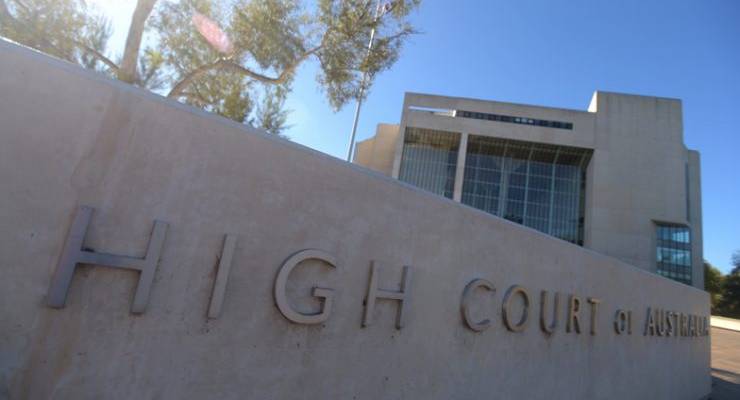
For a graduating law student, there’s no bigger prize than landing a job at the courts.
Associates, also known as tipstaffs, spend a year working closely with judges, and get a ringside seat at the highest echelons of the justice system.
And in a deeply hierarchical profession, where everyone knows everyone, and everyone listens to judges, it’s a job that can open doors for the rest of your career.
But the darker side of that intimate professional relationship came to light this week, after The Sydney Morning Herald revealed allegations that former High Court justice Dyson Heydon had sexually harassed past associates.
Speaking to Inq on the condition of anonymity, current and former tipstaffs said that while the job was professionally rewarding, it came with a potentially concerning power imbalance, and lack of transparency — issues the Heydon case has finally exposed.
Power imbalance
So much of what a tipstaff or associate does (the terminology differs from court to court) depends on the judge. Work can range from ghostwriting major judgments and conducting legal research, to more mundane matters like printing out emails and fetching coffee.
Either way, positions are highly sought after, filled by the top law graduates in the country, and seen as the first step in a glittering career that culminates at the bar or the bench.
What is also probably unique to working for a judge is the closeness of the relationship, and the huge gulf in experience. Judges are put on a pedestal, and have tremendous clout in the legal world.
Associates, meanwhile, tend to be fresh out of university, with little professional and legal experience.
“Intrinsic in the role is the power imbalance,” a former NSW Supreme Court tipstaff told Inq.
“I gained so much from that close working relationship, but I can see how it would create an environment for abuses to happen,” she said.
Judges also have substantial control over an associate’s workplace life.
Several tipstaffs said they were surprised to learn that the courts had no real human resources policies or team. They were encouraged to sort out any issues directly with their judge.
That’s one thing for issues like taking leave, but for more serious matters and potential complaints, tipstaffs have nowhere to go.
That control can also deepen the power imbalance, and make maintenance of a good relationship even more essential.
“As much as scoring a position and a good ongoing relationship with a judge is an incredible thing for a budding legal career, the opposite would be a pretty intimidating prospect,” a tipstaff said.
No transparency
To an outsider, the courts can seem highly archaic, rule-bound and opaque.
The associate’s job is no exception. The lack of transparency begins before a tipstaff has even walked in the door.
Despite positions being so highly coveted, most judges do not openly advertise for the roles. Instead, students usually have to contact judges directly. Many already have their associate positions filled years in advance, with the top students getting a shoulder tap before their final year.
Landing a job at the courts can be about more than just having top academic credentials. It’s also a matter of being in the loop, knowing which judges are hiring, having older friends already in the system. And the hiring process is deeply subjective, and depends on the whims of the particular judge.
“It’s often emphasised that the most important attribute about a tippy or associate is whether the judge thinks you’ll fit” in their (usually his) chambers, and wants to spend a lot of time with you,” a current tipstaff said.
That means tipstaffs enter the role without ever having a clear job description.
The subjective, opaque hiring processes also help reinforce various problematic power structures in the legal profession. For example, several NSW Supreme Court tipstaffs pointed out that this year’s cohort is particularly white.
Belated change?
Could the Heydon allegations be the catalyst for broader, much-needed change in legal culture? Heydon’s alleged bad behaviour was reportedly one of the profession’s many badly-kept secrets, with generations of young associates quietly warned to avoid him.
And in response to the news, there’s some evidence that courts are rethinking how the judge-associate relationship is managed.
Yesterday, the NSW Supreme Court announced it was developing a new sexual harassment policy, set to be released next week. Courts are now talking about anti-bullying training for judges.
But while that renewed focus is a positive, so many of the potential problems are deeply rooted in legal culture itself, where judges and senior barristers are deified and given a free pass. As long as that continues, so will the secrets.








Crikey encourages robust conversations on our website. However, we’re a small team, so sometimes we have to reluctantly turn comments off due to legal risk. Thanks for your understanding and in the meantime, have a read of our moderation guidelines.